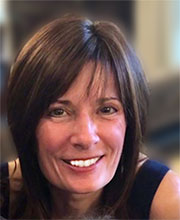 Although death is certain, it epitomizes the uncertainty that unnerves us. We don’t know how or when it will strike … or what will follow.
Although death is certain, it epitomizes the uncertainty that unnerves us. We don’t know how or when it will strike … or what will follow.
Death is oblivious to status, money, fame, age and even health. Martin Luther King Jr., Princess Diana, John McCain … and members of our own families attest to death’s apparent indiscrimination.
We don’t like to be caught off guard, but how do we prepare for death? What allows some of us to feel ready and fearless?
“How did you get so smart?” asked Larry Dargie, “It took me 82 years to get this smart.”
I had just delivered my very first talk on relationships in 2001 in Ocala, Florida, and Larry was among the first to shake my hand afterward. Between then and now he would come to hear me speak several times — in Ocala, Gainesville, Ormond by the Sea and Cedar Key. He died at 90 years old.
Not everybody who frequents my workshops is a dear friend. Larry was. I don’t think he ever showed up alone. He brought people with him — one, two, three, four, five. He shared me; he shared himself.
And he didn’t stop living because he was old. I missed his last birthday celebration, but he sent me a photo of him in midair with a parachute on!
Why wasn’t Larry afraid of dying?
He wasn’t afraid of living! We fear death only when we’ve been too scared to really live life. When we have seized our chance at life, we don’t feel like we’re losing it. And often we embrace a belief in something bigger than this life that transcends death. Likewise, those who believe in heaven, find their hope in living a “good” life or accepting salvation.
Death is a transition, but none of us knows exactly what we’re moving into.
So, we might wonder how we’ll manage it, much the way a first grader worries about doing second grade work. First grade is all the preparation he needs, though. Johnny needn’t second-guess the teacher who wants to help him pass first grade.
Life is the good teacher that prepares us for death. We move forward more smoothly if we trust life, rather than fight it, show up, rather than skip class because we get scared.
“Death is not the greatest loss in life. The greatest loss is what dies inside us while we live,” said Norman Cousins.
When we get anxious about what comes next, we miss out on the moment. We stand on the sidelines watching and wondering. We get stuck and forego living, stressing about the best strategy or withdrawing altogether.
We’re not expected to know all the moves, though. The best thing we can do is simply live, because we learn through experience … and we don’t get any on the bench critiquing everybody else.
“You and I have a choice. Either we lament all the high notes we can’t or won’t hit, or we leave those to Pavarotti and get on with the rest of our song,” said Rosita Perez, another dear friend, speaker and musician who passed away.
We have to hit the notes we can in order to hit them with more ease or move on to higher ones. And in trying our wings, we face our own vulnerability and stretch our comfort zone. Then death doesn’t feel like an adversary. It feels like another transition that leads us onward and upward to happy and free.
We may not know how or when death will strike, but if we trust life, we learn to live well and love well. We die with wings.
You can’t decide how long you will live, but you can decide how well you will live. And that, my friend, allows you to trust where death leads you.
 Jan's program for the quest of a lifetime.
Jan's program for the quest of a lifetime. Are you ready to live your destiny?
Are you ready to live your destiny?